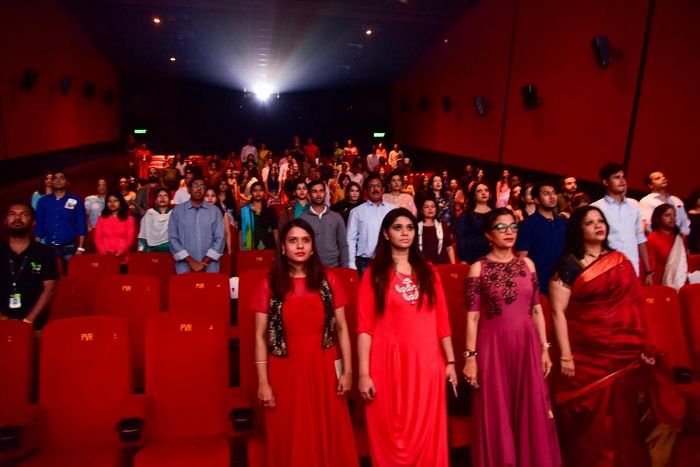
The Centre has told the Delhi High Court that the national song occupies a unique and special place in the emotions and psyche of the people of India and both the national anthem 'Jana Gana Mana' and 'Vande Mataram' stand on equal footing.
In a response to a PIL by advocate Ashwini Kumar Upadhyay, the Ministry of Home Affairs (MHA) said the government would abide by any direction by the court in this regard as it considered the matter as not adversarial.
In his plea, Upadhyay sought parity of treatment between the national anthem and national song and also to frame guidelines for the national song 'Vande Mataram', giving it the same honour and status at par with the national anthem of India.
The government maintained that the national anthem and the national song both have their sanctity and deserve equal respect but it can never be a subject matter seeking writ of the court more particularly in view of the settled position.
It referred to the Supreme Court's order of February 17, 2017, which stated that Article 51A (a) of the Constitution does not refer to 'National Song' as it only refers to the national flag and national anthem and the court would not intend to enter into any debate as far as the national song is concerned.
The written reply stated, "Both 'Jana Gana Mana' and 'Vande Mataram' stand on the same level and every citizen of the country should show equal respect to both. National song occupies a unique and special place in the emotions and psyche of the people of India."
The government also pointed out on November 24, 1950, the President of the Constituent Assembly of India adopted the 'Jana Gana Mana' as the national anthem of India.
"The instructions named 'Orders relating to National Anthem of India' were issued regarding the manner and the circumstances in which the national anthem has to be played or sung. In the year 1971, the action of prevention of singing of the national anthem or causing disturbances to any assembly engaged in such singing was made punishable offence by way of an Enactment of the Prevention of Insults to National Honour Act, 1971," it said.
"Similar penal provisions have not been made in the case of national song' Vande Mataram' and no instructions have been issued laying down the circumstances in which it may be sung or played," it added.
